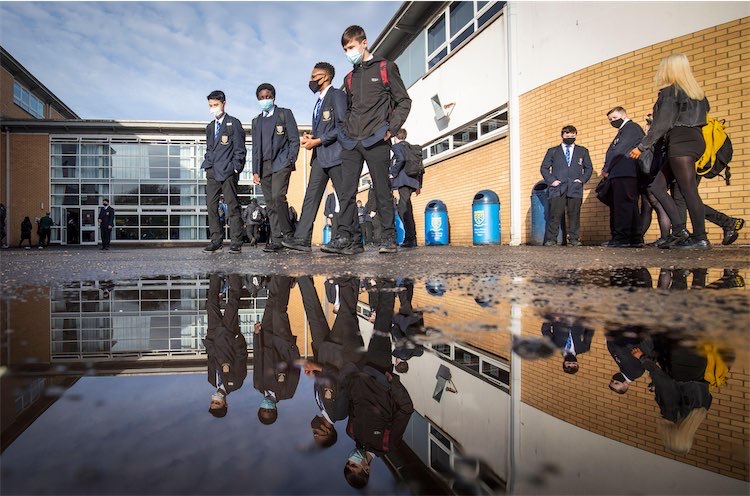Most Ethnic Minorities Perform Better At School Than White Children, New Government Report Claims
3 min read
All ethnic minority groups apart from Black Caribbeans perform better than white pupils at school, according to a government-commissioned report which said the UK was not "institutionally racist".
The report, published by Boris Johnson's Commission on Race and Ethnic Disparities, stated: "Education is the single most emphatic success story of the British ethnic minority experience".
This is down to "minority aspiration driving high educational achievement for children from certain ethnic communities," which it claimed is leading to a "fairer and more diverse workplace".
Analysis of 2019 GCSE results found that 62.7% of Black African pupils achieved A*-C in English and maths, compared to 61.8% of White British pupils, the report said. However, it noted that a significantly smaller proportion of Black Caribbean pupils — 50.3% — achieved those grades.
The Prime Minister set up the Commission in the wake of the Black Lives Matters protests last year and the findings of its highly-anticipated, 264-page report will likely be controversial.
The findings published on Wednesday evening said race was not the reason for most disparities between ethnic minorities and their white counterparts in the UK, and that in most cases social class and family structure were more important factors.
While it acknowledged that "overt and outright racism persists in the UK, particularly online," it criticised claims that the country was "institutionally racist" as being "not borne out by evidence".
The UK "should be regarded as a model for other white-majority countries" when it comes to addressing racial disaparity, the report concluded.
However, it said some communities continued to feel “haunted” by “historic cases” or racism which was leading to "deep mistrust" in the system and creating barriers to success.
The report said the pay gap between ethnic minorities and their white counterparts had decreased to 2.3% and in 2019 there was "no significant pay gap" between these groups among those under the age 30.

While there are still disparities at the highest levels of the public and private sectors it is "an improving picture," the report claimed, with " increasing levels of diversity in elite professions such as law and medicine".
The Commission was set up by Munira Mizra, chief policy adviser to Prime Minister Johnson.
His decision to put Mizra in charge was criticised by Labour, which pointed to several articles she had written which critics said sought to deny the existence of institutional racism in the UK.
Shadow Justice Secretary David Lammy said the government was "trying to wage a culture war".
The report made 24 recommendations, including "moving away from funding unconscious bias training" and ditching the use of BAME (Black, Asian and minority ethnic) as "the differences between ethnic groups are now at least as important as the commonalities".
The government should phase in extended school days to help children in disadvantaged areas catch up on the education they lost during the coronavirus pandemic, it said.
The Commission's chairman Tony Sewell said: “The report highlights the significance of education as the single most powerful tool in reducing ethnic disparities. The effect of education is transformative on individuals but also their families and their communities, sometimes within a generation.
"Another revelation from our dive into the data was just how stuck some groups from the white majority are. As a result, we came to the view that recommendations should, wherever possible, be designed to remove obstacles for everyone, rather than specific groups".
Dr Sewell added: “Creating a successful multi-ethnic society is hard, and racial disparities exist wherever such a society is being forged. The Commission believes that if these recommendations are implemented, it will give a further burst of momentum to the story of our country’s progress to a successful multi-ethnic and multicultural community – a beacon to the rest of Europe and the world".
